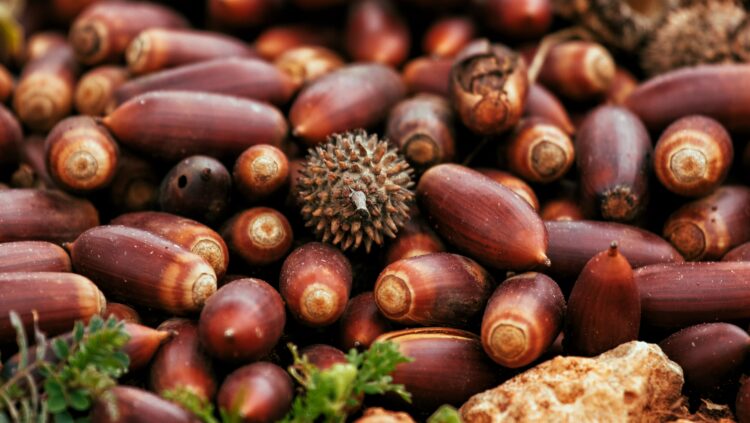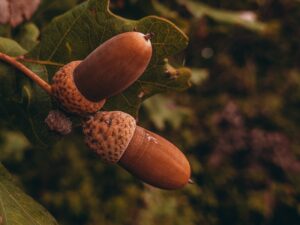
As a general rule, acorns mature in late summer and start falling from the trees in September or October.
Oct. 18. By TL Bernthal. Acorns are the fruit of the oak tree. And it’s a fruitful season.
So what should you do so you don’t have a bumper crop of oak saplings this spring?
Bad as ice
You definitely want to get the acorns off the driveway, especially if it has an incline, so guests and delivery folk don’t slip. Acorns can be as dangerous as ice.
“The easiest way for residents to get rid of acorns is put them in their trash carts,” says Tyler Beardsley, assistant town manager for the Town of Cornelius. “They will be picked up weekly with the trash.”
Leaf collection begins Nov. 1
Along with the acorns, come leaves from all manner of trees. Town leaf collection will run Nov. 1 through Jan. 31, Beardsley says. The leaf vacuum will also suck up acorns if they are in the leaf piles, he explains.
Folklore
Winter folklore says a heavy fall of acorns means a cold winter is coming. The acorn drop and winter weather have no correlation, experts say.
Toxic to dogs
If a dog consumes a lot of acorns, it is at risk of gallotannin poisoning, experts say.
If your dog accidentally eats some small pieces of acorn, it should not cause any significant issues. Your dog’s body will digest and process the acorn just fine, and it will not require an emergency trip to the vet. In the outer, tough shell of the acorn, it contains a substance called gallontannin that is poisonous, according to wagwalking.com.
Cook them for humans
Raw acorns contain tannins, which can be toxic to humans and cause an unpleasant bitter taste.

If you are going to consume acorns, look for brown ones with the caps on. Acorns can also be used in crafts and fall decorating.
But tannins can be removed from acorns, making them safe for human consumption. When boiling or soaking the acorns, the water will turn brown from the tannic acid. This brown water should be thrown out and replaced, and then the acorns must be boiled or soaked again. This process should be repeated until the water no longer turns brown.
Acorns can be roasted or ground to a flour like corn or wheat.





